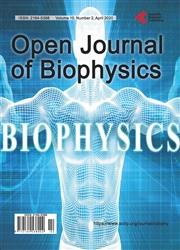DNA Sequencing Modified Method through Effective Regulation of Its Translocation Speed in Aqueous Solution
引用次数: 2
Abstract
Solid-state nanopore DNA sequencing modified method is developed. Method is based on the tunnel current investigation through the nanogap made on lateral gold electrodes in the form of nanowires or nanoribbons. The movement of DNA in aqueous solution is regulated by the potential applied to reference electrode. The potential applied to the lateral metal electrodes helps to the creation of the molecular junctions. They consist of the nucleosides passing through the pores. Taking into account that DNA moves under gravity, electrophoretic and drag forces, the analytic expression for the DNA translocation speed is calculated and analyzed. The conditions for decreasing the DNA translocation speed or increasing the nucleosides reading time are received. It is shown that one can control value of the DNA molecules bases reading time and the frequency of the bases passes by the choice of magnitude of the potential applied to reference electrode. Our results, therefore potentially suggest a realistic, inherently design-specific, high-throughput nanopore DNA sequencing device/cell as a de-novo alternative to the existing methods.通过有效调节DNA在水溶液中的易位速度来改进DNA测序方法
提出了一种固体纳米孔DNA测序修饰方法。该方法是基于通过纳米线或纳米带形式的横向金电极上的纳米间隙进行隧道电流研究。DNA在水溶液中的运动是由施加在参比电极上的电位调控的。施加在侧面金属电极上的电位有助于分子结的形成。它们由通过孔的核苷组成。考虑DNA在重力、电泳和阻力作用下的运动,计算并分析了DNA易位速度的解析表达式。提出了降低DNA易位速度或增加核苷读取时间的条件。结果表明,通过选择施加在参比电极上的电位的大小,可以控制DNA分子碱基的读数时间和碱基通过的频率。因此,我们的研究结果潜在地提出了一种现实的、固有设计特异性的、高通量的纳米孔DNA测序装置/细胞,作为现有方法的一种从头开始的替代方案。
本文章由计算机程序翻译,如有差异,请以英文原文为准。
求助全文
约1分钟内获得全文
求助全文

 求助内容:
求助内容: 应助结果提醒方式:
应助结果提醒方式:


